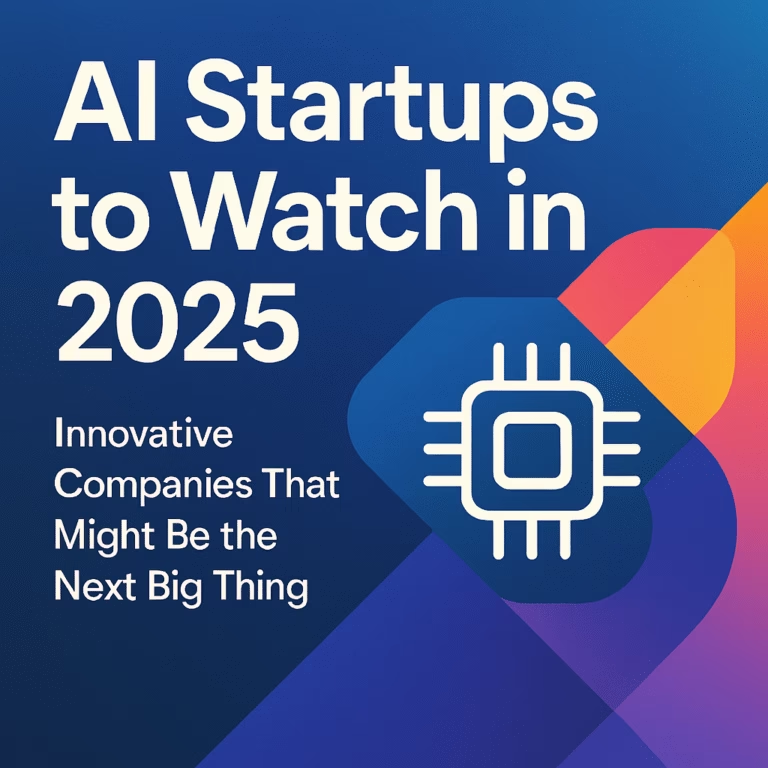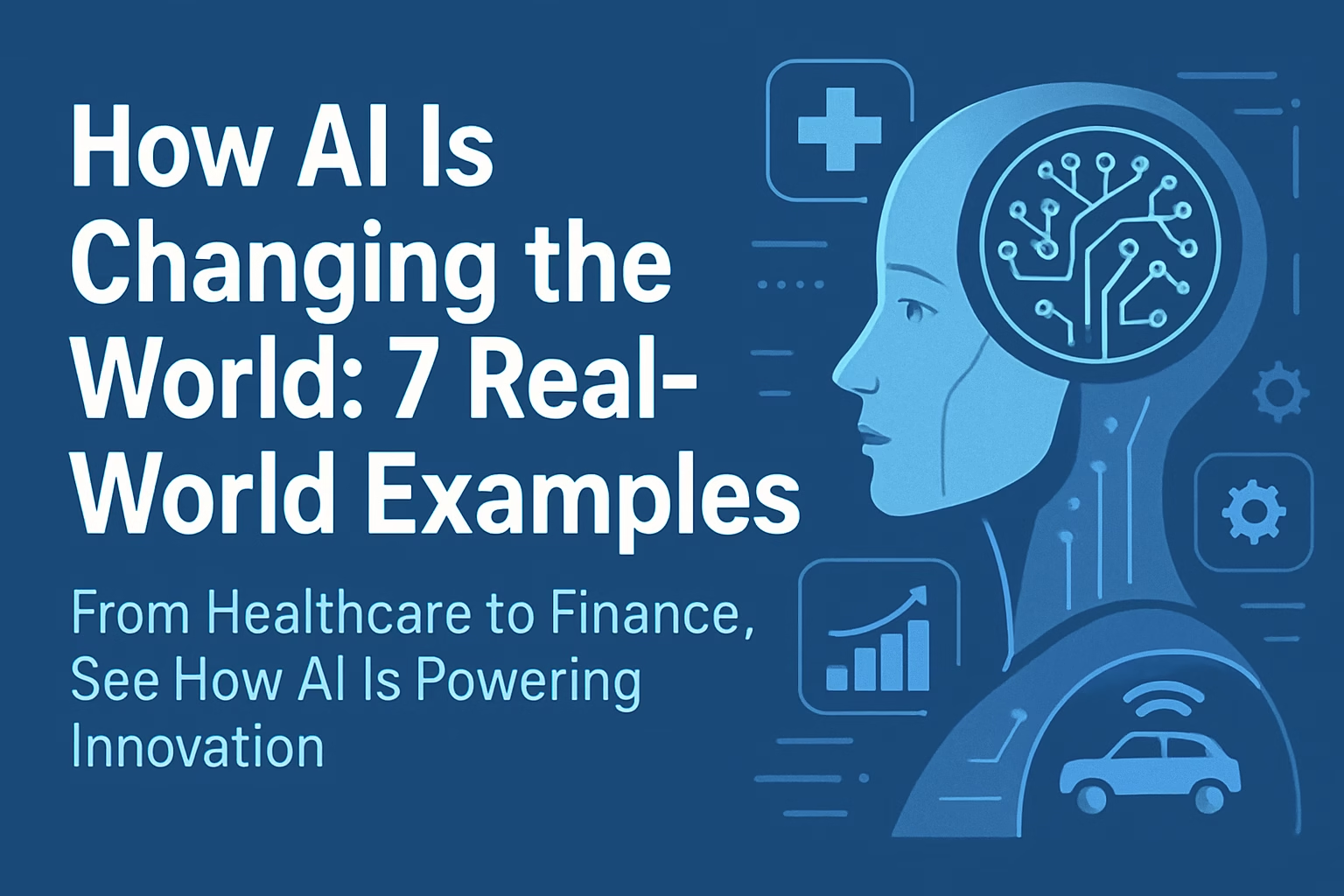Innovative Companies That Might Be the Next Big Thing
The artificial intelligence landscape in 2025 is nothing short of extraordinary. With funding to AI companies surpassing $170 billion and thousands of new AI ventures emerging since 2024, we’re witnessing what many consider the most significant technological revolution since the internet. While established players like OpenAI and Anthropic continue to dominate headlines, a new generation of innovative startups is quietly building the foundation for tomorrow’s AI ecosystem.
The numbers tell a compelling story. AI startups raised $104 billion in the first half of the year, demonstrating unprecedented investor confidence in the sector. Meanwhile, AI-enabled startups captured a majority (62%) of digital health venture funding in H1 2025, showcasing how deeply AI is penetrating traditional industries.
But beyond the funding frenzy lies a more interesting narrative—the emergence of specialized AI companies solving specific, complex problems across industries. From healthcare breakthroughs to infrastructure security, these startups represent the next wave of AI innovation that could reshape how we work, live, and interact with technology.
The Current AI Startup Landscape
The AI startup ecosystem has evolved dramatically over the past year. Unlike the earlier focus on general-purpose AI models, today’s most promising startups are building highly specialized solutions for specific industries and use cases. This shift reflects a maturing market where businesses are looking for practical AI applications rather than just impressive demos.
What’s particularly fascinating is how these companies are approaching the challenge of building sustainable businesses in an increasingly crowded market. Many are focusing on what we might call “AI infrastructure”—the tools and platforms that enable other companies to deploy AI effectively. Others are diving deep into vertical applications, becoming the go-to AI solution for specific industries like healthcare, finance, or manufacturing.
The funding patterns reveal another interesting trend. While mega-rounds continue to make headlines, there’s also robust activity in the seed and Series A stages, suggesting that investors see value in backing early-stage AI companies with novel approaches to longstanding problems.
Top AI Startups Making Waves
Infrastructure and Platform Companies
SambaNova Systems has emerged as a standout in the AI hardware and software platform space. SambaNova Systems develops advanced AI hardware and software platforms to support AI applications in enterprises. Their platforms are particularly beneficial for industries that require high-performance AI, such as finance, energy, and healthcare. What sets them apart is their focus on making AI deployment more efficient and cost-effective for large enterprises.
Nexthop AI recently made headlines with its impressive funding round. On March 25, Nexthop AI, an AI infrastructure company, announced that it had raised a Series A round led by Lightspeed Venture Partners. The $110 million round also included Kleiner Perkins, Battery Ventures, and Emergent Ventures. The company is building critical infrastructure that enables other AI companies to scale more effectively.
Healthcare AI Pioneers
The healthcare sector has become a hotbed of AI innovation, with several startups making significant breakthroughs in 2025.
Insilico Medicine is revolutionizing drug discovery through generative AI. Cambridge Massachusetts-based Insilico Medicine raised $110 million for its generative AI-powered drug discovery platform. Their approach combines deep learning with domain expertise to accelerate the traditionally slow and expensive process of bringing new medicines to market.
Graph Therapeutics represents the new wave of European AI health startups. This Vienna-based biotech startup, founded in 2024, is at the forefront of healthcare innovation. They aim to change inflammation and immunology drug discovery by applying AI, a therapeutic area traditionally characterised by trial-and-error methods. Their focus on inflammation and immunology addresses some of the most challenging areas in medicine.
Ephion Health is tackling patient monitoring with innovative wearable technology. Ephion Health created a comprehensive, advanced patient monitoring platform to check the biomechanical parameters of gait and assess a patient’s functional capacity. This multi-sensor-wearable healthcare AI platform leverages AI-based analytics to provide insights that were previously impossible to obtain outside of clinical settings.
Emerging Sector Leaders
Sohar Health is transforming healthcare administration through AI-driven solutions. Sohar Health is an AI-driven front-end RCM solution that transforms insurance verification processes for healthcare providers, enabling faster patient conversions and reducing administrative workloads. With a 95% automation rate, our API-first platform seamlessly integrates into existing workflows. Their 95% automation rate demonstrates the practical impact AI can have on traditionally manual processes.
Funding Trends and Investment Patterns
The investment landscape for AI startups in 2025 reveals several important patterns that prospective entrepreneurs and investors should understand.
Investment Volume and Distribution
| Funding Segment | H1 2025 Investment | Notable Trends |
|---|---|---|
| Total AI Funding | $104 billion | 155% increase YoY in M&A volume |
| Healthcare AI | $4 billion | 62% of digital health VC funding |
| Infrastructure | $15+ billion | Focus on scalability solutions |
| Enterprise Applications | $25+ billion | Vertical-specific solutions |
The data shows a clear preference for AI companies with proven business models and clear paths to profitability. Healthcare AI, in particular, has attracted significant attention due to its potential for immediate impact and clear regulatory pathways.
Geographic Distribution of AI Startup Success
| Region | Number of Major Rounds | Total Funding | Key Focus Areas |
|---|---|---|---|
| United States | 24 companies >$100M | $65 billion | Infrastructure, Healthcare |
| Europe | 15 companies >$50M | $12 billion | Healthcare, Manufacturing |
| Asia-Pacific | 18 companies >$75M | $22 billion | Robotics, Consumer AI |
| Other Regions | 8 companies >$25M | $5 billion | Fintech, Agriculture |
What Investors Are Looking For
Based on the funding patterns we’re seeing, investors are prioritizing several key characteristics in AI startups:
Clear Value Proposition: Companies that can articulate exactly how their AI solution solves a specific problem are getting funded. Gone are the days when “we use AI” was sufficient—investors want to see clear metrics on efficiency gains, cost savings, or revenue generation.
Scalable Business Models: The most successful funding rounds are going to companies with business models that can scale without proportional increases in human resources. This is particularly evident in the infrastructure and platform plays that are seeing the largest rounds.
Regulatory Clarity: Especially in healthcare and finance, startups that have clear regulatory pathways are attracting more investment. Companies like Insilico Medicine benefit from well-established FDA approval processes for drug discovery.
Experienced Teams: The complexity of AI development means that investors are placing a premium on teams with deep technical expertise combined with industry knowledge. The most successful startups often have founders who previously worked at major tech companies or have deep domain expertise in their target market.
Key Sectors and Applications
Healthcare Revolution
Healthcare continues to be the most promising sector for AI application, with startups addressing everything from drug discovery to patient monitoring. The sector’s attractiveness stems from several factors:
- Clear regulatory pathways for approval
- Measurable impact on patient outcomes
- Strong willingness to pay for effective solutions
- Large addressable markets in aging populations
The success of companies like Insilico Medicine and Graph Therapeutics demonstrates how AI can accelerate traditionally slow processes like drug discovery. Meanwhile, companies like Ephion Health and Sohar Health are showing how AI can improve the efficiency of healthcare delivery.
Infrastructure and Tools
The “picks and shovels” approach to AI investing has proven remarkably successful in 2025. Companies building the infrastructure that enables AI deployment are seeing strong investor interest because they benefit from the growth of the entire AI ecosystem rather than competing within it.
SambaNova Systems exemplifies this approach, providing the hardware and software platforms that enable enterprises to deploy AI effectively. Their success suggests that there’s significant value in solving the practical challenges of AI implementation rather than just building more AI models.
Enterprise Applications
The enterprise software market has embraced AI integration, but the most successful startups are those building AI-native solutions rather than retrofitting existing software with AI features. These companies are seeing strong adoption because they can deliver measurable business value from day one.
Investment Outlook and Predictions
What’s Driving the Investment Boom
Several factors are contributing to the unprecedented investment levels we’re seeing in AI startups:
Proven Technology Maturity: Unlike previous AI hype cycles, the underlying technology has reached a level of maturity where practical applications are not just possible but profitable. Companies are deploying AI solutions that generate clear ROI.
Competitive Pressure: Businesses across industries feel pressure to adopt AI or risk being left behind. This creates a strong demand-pull environment for AI startups with practical solutions.
Regulatory Support: Government initiatives supporting AI research and development have created a favorable environment for AI startups, particularly in strategic sectors like healthcare and national security.
Challenges on the Horizon
Despite the optimism, AI startups face several significant challenges:
Talent Competition: The demand for AI expertise far exceeds supply, driving up talent costs and making it difficult for startups to compete with well-funded giants like OpenAI and Google.
Model Costs: The cost of training and running large AI models remains prohibitively expensive for many applications, forcing startups to be creative about their technical approaches.
Market Saturation: In some areas, particularly general-purpose AI tools, the market is becoming saturated, forcing startups to find increasingly narrow niches or differentiate through superior execution.
Future Trends to Watch
Several trends are likely to shape the AI startup landscape over the next 12-18 months:
Vertical Specialization: We expect to see more AI startups focusing on specific industries or use cases rather than trying to build general-purpose solutions.
AI-Native Business Models: Companies built from the ground up around AI capabilities, rather than traditional software companies adding AI features, are likely to see continued success.
International Expansion: As AI regulations stabilize in different regions, we expect to see more cross-border investment and expansion among successful AI startups.
Conclusion
The AI startup ecosystem in 2025 represents a remarkable convergence of technological capability, market demand, and investment capital. While the headlines often focus on the mega-rounds raised by established players, the most interesting developments are happening among the specialized startups building practical solutions for specific industries and use cases.
The companies highlighted in this article—from SambaNova Systems’ infrastructure platforms to Graph Therapeutics’ drug discovery innovations—represent just a small sample of the innovation happening across the AI startup landscape. What unites them is a focus on solving real problems with measurable impact, rather than chasing the latest AI trend.
For entrepreneurs considering entering the AI space, the key lessons are clear: focus on specific problems with clear value propositions, build teams with deep technical and domain expertise, and be prepared for a competitive but potentially rewarding journey. The companies that succeed will be those that can navigate the technical challenges while building sustainable business models that deliver genuine value to their customers.
The AI revolution is far from over—in many ways, it’s just beginning. The startups emerging in 2025 may well become the foundational companies of the next technological era. For investors, entrepreneurs, and technologists alike, there has never been a more exciting time to be part of the AI ecosystem.
Sources:



